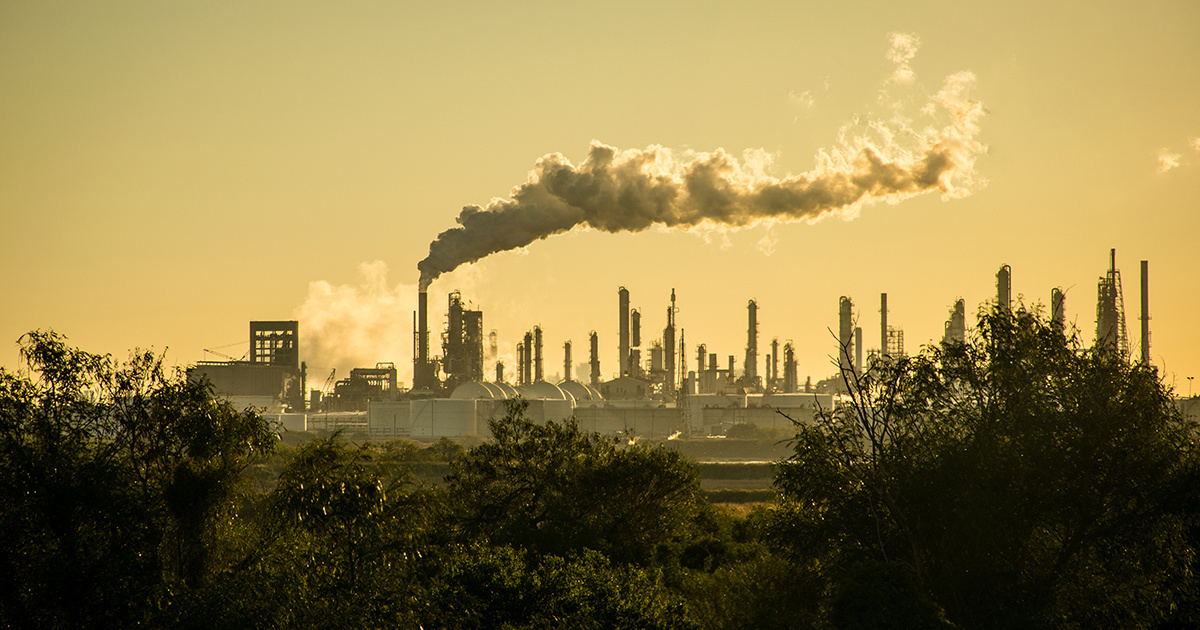
Trump’s NAFTA Replacement Ignores Climate Change, Favors Fossil Fuel Interests

After 14 months of negotiations, the U.S., Mexico and Canada agreed on a revised trade agreement Sunday that does not mention climate change or global warming, Canada’s National Observer reported.
The deal, which still has to be approved by the legislative bodies of all three countries, is a replacement for the North American Free Trade Agreement (NAFTA), which U.S. President Donald Trump had vowed to renegotiate or scrap altogether during his campaign.
Environmental groups say that the new deal, which is called the United States Mexico Canada Agreement (USMCA), benefits fossil fuel interests at the expense of the environment, and that the environmental section of the deal is weak on enforcement mechanisms.
“Trump’s trade agreement with Mexico and Canada is a corporate giveaway intended to sharply limit the powers of government to protect people and the planet,” Friends of the Earth director of economic policy Doug Norlen told the Huffington Post. “This agreement is an attack on our ability to hold Big Oil and Gas accountable for the damage they cause to our communities.”
Green groups are particularly concerned because one major improvement in the deal does not apply to oil and gas companies. NAFTA was criticized because the investor-state dispute settlement process gave corporations rights that overruled environmental protections, especially in Mexico, the country with the laxest environmental laws. The new deal limits those corporate rights for all but U.S. oil and gas companies undertaking government contract work in Mexico. These companies are still allowed to challenge local laws, which Mexican President-Elect Andrés Manuel López Obrador plans to strengthen.
“It’s like saying, ‘From here on, we’re going to protect the henhouse by keeping all animals away, except for foxes, they’re cool,'” Sierra Club living economy program director Ben Beachy told the Huffington Post in a phone interview.
Sierra Club Executive Director Michael Brune further told the National Observer that the deal’s environmental section was weak.
“For example, the text ‘recognizes that air pollution is a serious threat to public health,’ but then fails to include a single binding rule to reduce the air pollution that NAFTA has exacerbated,” he said. “Much of the language appears designed to greenwash the deal, not to rectify NAFTA’s threats to wildlife, ecosystems, or clean air and water.”
The language that does exist recognizes the importance of forests in providing “carbon storage” and commits signatories to “co-operate to address matters of mutual interest related to ozone-depleting substances” and to “take measures to prevent the pollution of the marine environment from ships.”
It also scraps a NAFTA stipulation that Canada export a certain percentage of its energy production, something that groups like the Council of Canadians said stood in the way of the country’s efforts to shift away from fossil fuels.
Finally, the deal includes a clause that could be interpreted as an acknowledgement of the Paris agreement. The deal says that signatories “recognize the importance of international agreements and other efforts to improve air quality and control air pollutants, including those that have the potential for long-range transport.” As the National Observer pointed out, greenhouse gases could be interpreted as air pollutants.
Overall, however, green groups fear that the deal will weaken regulations, as it includes a provision allowing companies to challenge regulations before they are passed and to request existing regulations be repealed.
“We expect that, after Trump is out of office, we’re going to have to work hard to re-regulate,” Beach told the Huffington Post. “Even after Trump leaves office, Trump’s NAFTA (revision) could extend his polluting legacy for years.”
America Burns From Climate Change While Trump Officials Attend Climate Denial Conference https://t.co/qC83M4EpkD @NRDC @UCSUSA @350 @billmckibben #climatechange
— EcoWatch (@EcoWatch) August 13, 2018

 233k
233k  41k
41k  Subscribe
Subscribe 